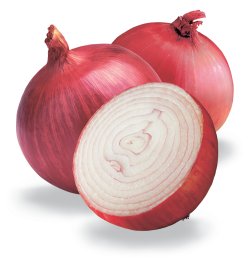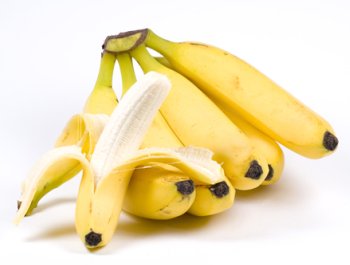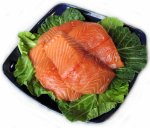Olive Oil and Heart Disease
Many studies on olive oil and heart disease show that olive oil is to heart disease what a sudden downpour is to a forest fire: it soothes inflammation, reduces oxidation and lowers cholesterol levels.

Olive oil forms the basis for the so-called Mediterranean diet, which is high in vegetables, whole grains, legumes and fruits and, of course, uses olive oil as an alternative to cholesterol-raising saturated fats such as butter.
This type of diet is found to substantially reduce the risk of heart disease.
Many studies show that olive oil contains chemical components that work wonders on the blood, such as blocking the tendency of blood to clot, improving good HDL-cholesterol ratios and combating dangerous arterial buildups of cholesterol.
Consequently, some experts now "perscribe" olive oil as an excellent way to cut the risk of first time as well as subsequent heart attacks and strokes.
How does the olive oil work?
For one thing, olive oil is dominated by monounsaturated fatty acids, which have a more protective effect on the blood than the often recommended polyunsaturated vegetable oils like corn oil.
Olive oil not only lowers total blood cholesterol, but also, unlike other vegetable oils, saves good HDL-cholesterol levels, thus in effect improving the critical protective ratios of "good cholesterol" - HDLs - that help defeat heart disease.
Other vegetable oils, such as corn, soybean, safflower and sunflower, tend to lower both dangerous LDL and beneficial HDL-type cholesterol.
Until recently, that seemed the whole explanation of the relationship between olive oil and heart disease.
But new research reveals that olive oil also contains potent heart-disease-fighting agents that independently produce physiological reactions - for example, by acting as an anticoagulant (thinning the blood, cutting the chances of clots and blockages) and partially blocking the absorption of excess cholesterol in the body.

A team of Italian scientists led by Dr. Bruno Berra, a professor of biochemistry at the School of Pharmacology at the University of Milan, has identified and charted the metabolic pathways of several of about 1000 active chemical components found in olive oil.
According to Dr. Berra, these chemicals components can even help counteract a high fat, high cholesteol diet.
One chemical in particular, called cycloarthanol, neutralizes cholesterol during the absorption cycle, helping keep it out of the bloodstream.
In Dr Berra's studies, one tablespoon of olive oil wiped out the cholesterol-raising effect of two eggs.
These compounds in olive oil dramatically prevents toxic oxidation of LDL cholesterol.
In a landmark study, Dr Daniel Steinberg at the University of California, gave one group of healthy volunteers about 40% of their calories in monounsaturated fat, equal to about 3 tablespoons of olive oil a day. Other ate regular safflower oil low in monounsaturated fatty acids.
Then researchers examined the LDL cholesterol from both groups. Remarkably, the LDL of the monounsaturated oil eaters was only half as likely to become oxidized and thus able to clog arteries!
Olive Oil Fights Clots
In addition to everything else it does, olive oil even retards the stickiness of blood platelets, which may help account for olive oil's artery protecting powers.
In one study at the Royal Free Hospital and School of Medicine in London, voluteers took three-forths of a tablespoon of olive oil twice a day for eight weeks in addition to their regular diet. Their platelet-clumping scores took a dive.
The scientists found that platelet membranes contained more oleic acid (the dominant fatty acid in olive oil) and less arachidonic fatty acid that encourages stickiness.
The olive-oil fed blood platelets also releases less thromboxane, a substance that commands platelets to cling together.
How To Use Olive Oil?
Just because olive oil is so good at preventing and treating heart disease, it doesn't mean that you should drink gallons of it.
The best think to do is to use it instead of any other fat in your diet.
There's so much evidence on the relationship between olive oil and heart disease, that you definitely want to include it in your diet.
The best type is extra virgin because it contains more antioxidants from the pressing of the olives.
Articles in the Heart Disease Series:
- What Causes Heart Disease
- Reverse Heart Disease with
Healing Foods
- Healing Foods for Heart Disease
- Fish Oil and Heart Disease
- Beans and Heart Disease
- Onions for Your Heart
- Garlic and Heart Disease
- Heart Healthy Nuts
- Olive Oil and Heart Disease
- Treat Heart Disease with Fruits and Vegetables
- Wine for Heart Disease
- Green Tea for Heart Disease
Supplements That Might Help You Fight
Heart Disease
|
|
|
- Home --->
- Reverse Heart Disease with Healing Foods --->
- Healing Foods for Heart Disease --->
- Olive Oil and Heart Disease
References:
https://www.ncbi.nlm.nih.gov/pubmed/29141571 - Extra Virgin Olive Oil and Cardiovascular Diseases: Benefits for Human Health (Accessed on 16/03/20) by Nocella C, Cammisotto V, Fianchini L, D'Amico A, Novo M, Castellani V, Stefanini L, Violi F, Carnevale R.
Search for information on this site:
Receive Discover the Power of Healing Foods! Free
Newsletter
Supplements to Help You Fight Heart Disease
Even more effective than fish oil in preventing Heart Disease!
Nutrigold EPA Marine Fish Oil are
sourced from
ecologically clean seas and undergo selective absorption of pollutants like
heavy metals, dioxides and PCBs to ensure purity.
Nutrigold Magnesium Citrizorb®
provides 100mg elemental magnesium per
capsule in a highly bioavailable and bioactive organic citrate form.
Blend of natural botanicals including psyllium husk, fennel, garlic, inulin,
peppermint and papaya, L-Glutamine and Bifidobacteria
Homocysteine is a
common amino acid in your blood. You get it mostly from eating meat.
High levels of it are linked to early development of heart disease.
Nutrigold Superlec Plus is a natural lecithin powder, delivering high
potency phosphatidyl choline (32%) and plant sterols including
beta-sitosterol.









New! Comments
Have your say about what you just read! Leave me a comment in the box below.